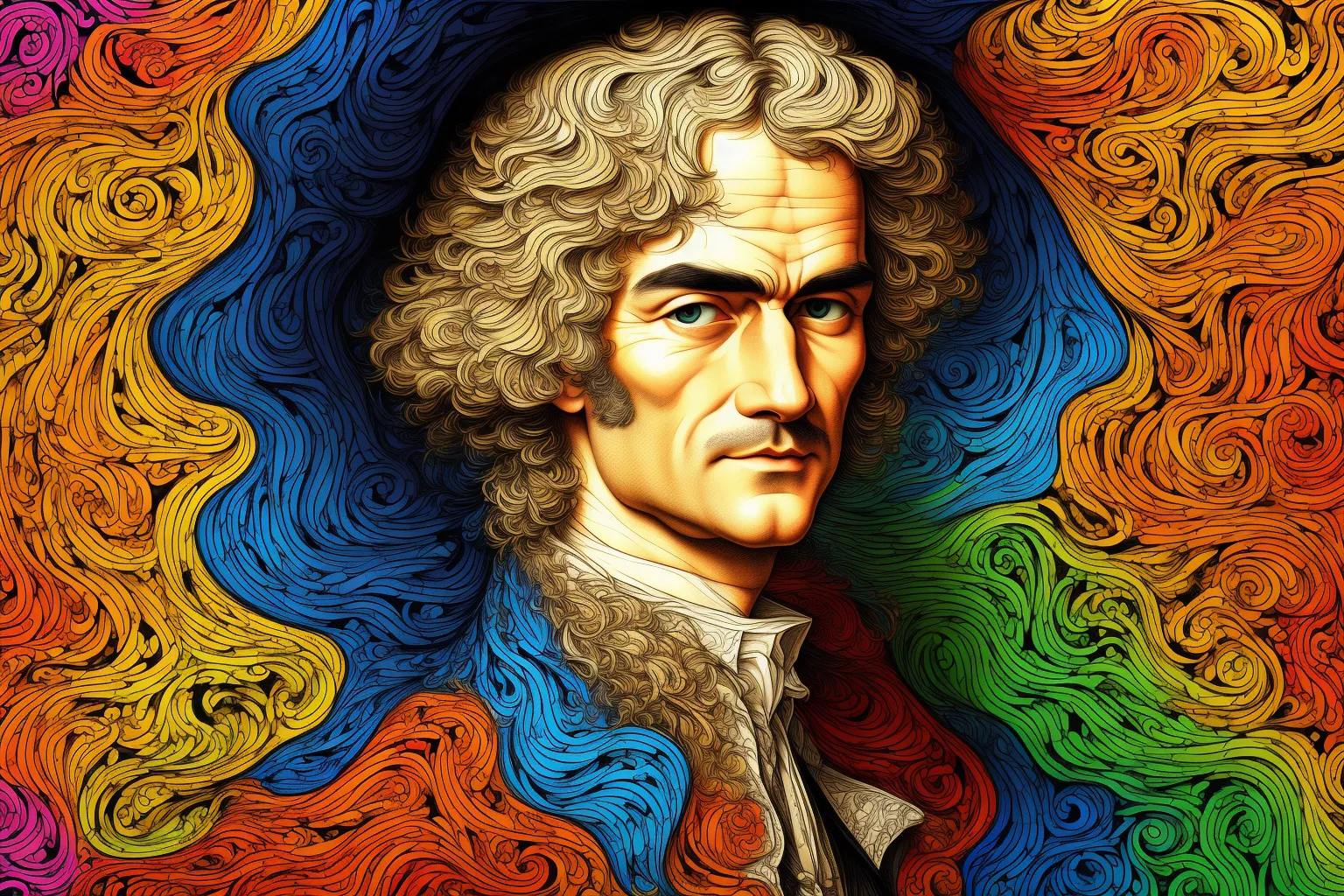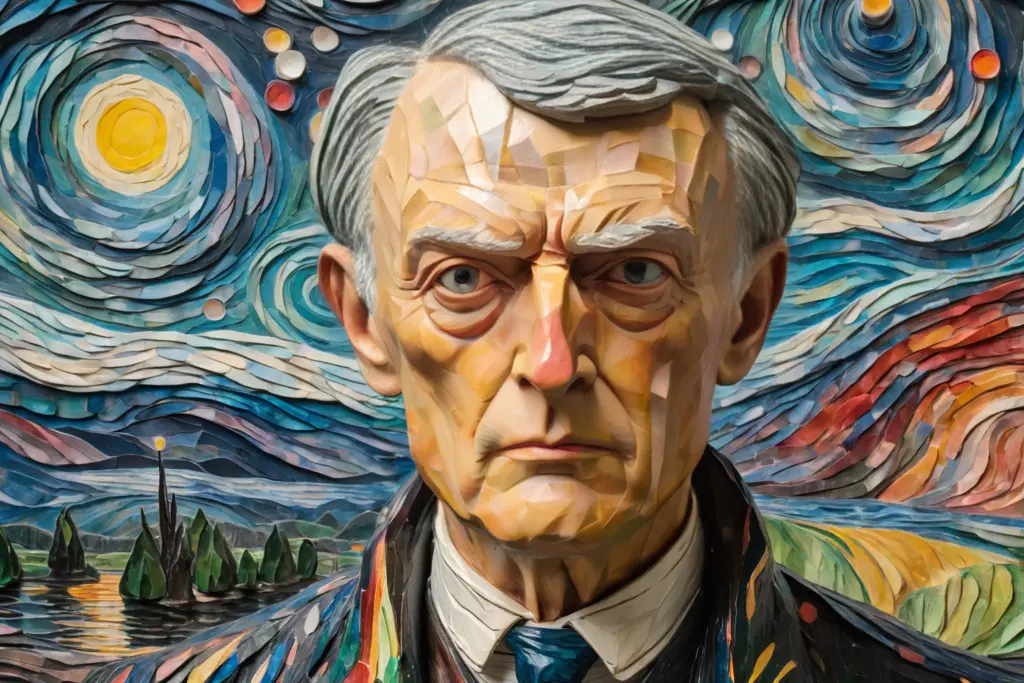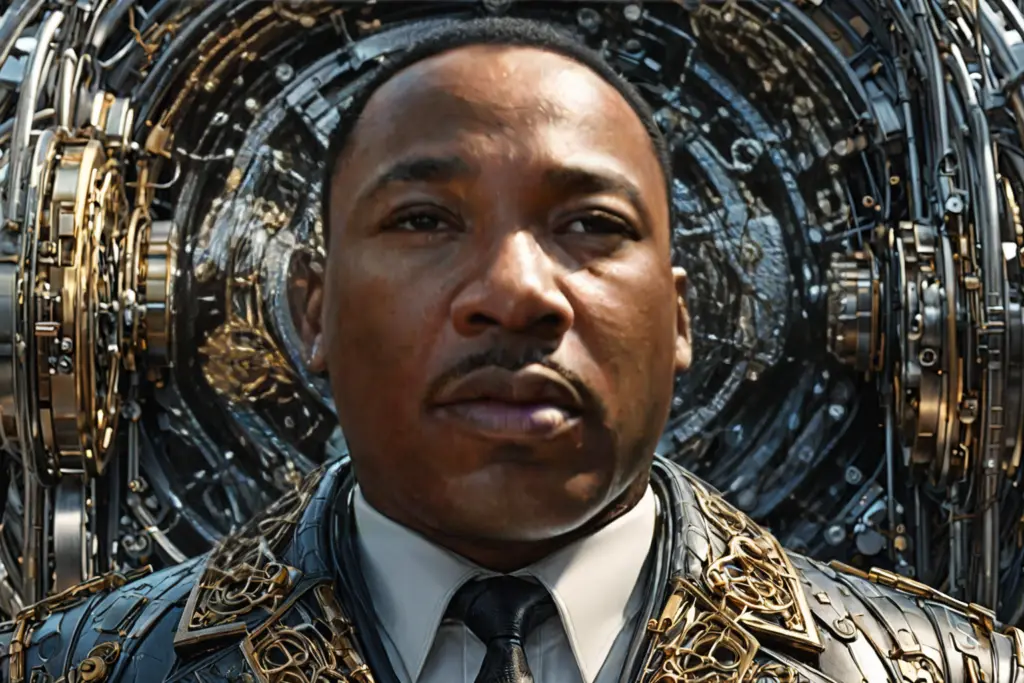
Portrait of Newton, Verism, Scribble Art
1. Sir Isaac Newton (1642-1727) was an English physicist and mathematician who is widely recognized as one of the most influential scientists in history. He formulated the laws of motion and universal gravitation, which fundamentally changed our understanding of the natural world.
- Born prematurely, Newton survived an illness that claimed the lives of his mother and three siblings at a young age. His father remarried when Isaac was about eight years old.
Newton attended the University of Cambridge’s Trinity College where he studied Aristotelian philosophy. He later developed his own theories on motion, light, and calculus while developing a disdain for alchemy, which he had initially pursued at university.
The “apple” story: According to popular belief, an apple falling from a tree inspired Newton’s concept of gravity. However, this anecdote likely originated much later in his life and may not be completely accurate.
Newton made significant contributions to mathematics by developing a branch of it called “infinitesimal calculus,” which laid the foundation for many advanced scientific theories, including fluid mechanics, optics, and thermodynamics.
As a young man, Newton became involved in alchemy and developed a vast knowledge on various minerals and metals. This interest later led to his involvement in the field of chemistry.
Besides his scientific contributions, Newton served as the President of the Royal Society, an advisor for monarchs, was knighted by King Charles II, and played a role in the development of early banks in England.
His work “Philosophiæ Naturalis Principia Mathematica” (“Mathematical Principles of Natural Philosophy”) is considered one of the greatest works in the history of science. In it, Newton laid out his laws of motion and universal gravitation.
Despite having some religious doubts throughout his life, Newton remained deeply committed to his faith. He wrote many theological treatises and biblical commentaries, but these were not published until after his death.
As a mathematician, he developed the binomial theorem formula, which is still widely used in mathematics today.
Newton had a long-standing rivalry with Robert Hooke over their conflicting theories of gravity and motion. This rivalry was often acrimonious but ultimately contributed to advancing scientific knowledge.
Text model: dolphin-mistral
Image model: WildCardXXLAnimation

The Neural Navigator is a creative mind behind the lens of AI-generated images.
The Neural Navigator is always pushing the limits of what’s possible in this exciting new frontier of digital creativity. Whether it’s surreal landscapes, abstract patterns, or striking portraits, each image is a testament to the endless potential of AI-driven art.
Follow The Neural Navigator for a daily dose of innovative and visually stunning AI-generated imagery.


